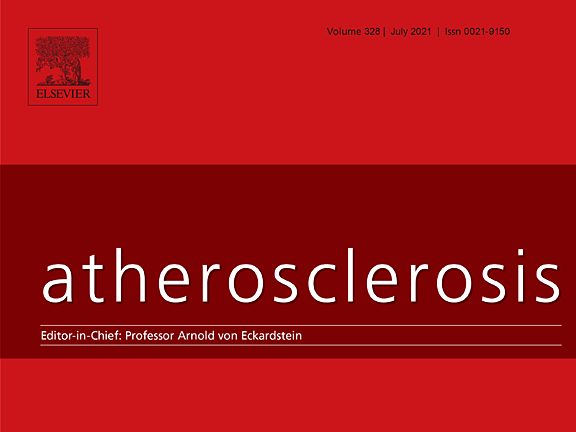A European cardiology journal has issued expressions of concern for seven widely-cited papers dating back to 2009 after a reader flagged suspicious images in the articles.
Although the cast of characters changes, the senior author on all seven papers is Chao-Ke Tang, of the First Affiliated Hospital of the University of South China, in Hengyang, Hunan. To date, at least 15 of Tang’s papers have come under scrutiny on PubPeer. Two months ago, for example, Elisabeth Bik posted about “unexpected similarities” in multiple figures in a 2013 paper by Tang and colleagues that appeared in PLoS ONE.
But Sander Kersten, the chair of Nutrition, Metabolism and Genomics and Division of Human Nutrition and Health at Wageningen University in The Netherlands, said he believes that the researcher’s output for roughly the past decade is unreliable.
Kersten said his concerns about Tang date back to 2014, when he reviewed — negatively — a manuscript for Atherosclerosis, an Elsevier title, from the researcher:
I had indicated to the editor when reviewing the paper that I did not trust the results and suspected manipulation. For example, the LPL mRNA, protein and activity levels were too similar with very small error bars. It looked too good to be true. Based on my concern the paper was rejected due to ethical concerns. The paper ended up being published in Biochimie.
A couple months later I again received a review request from Atherosclerosis for a different paper by the same research team. I examined the paper and indicated that I had the same unease as with the other paper and would like to excuse myself from reviewing the paper. I have no record of the decision letter of Atherosclerosis (because I was not officially a reviewer) but they must have rejected the paper as it appeared a while later in PLoS ONE.
Kersten told us that after noticing that many of Tang’s articles involved work on microRNAs, a favorite topic of paper mills, he began looking more closely at them:
When I inspected some of the papers I got uneasy with many of the bars graphs which further stimulated my suspicion. After that I contacted Elisabeth Bik, who had contacted me many years ago to alert me about one of our papers being plagiarized. I expressed my concerns to her about this author and tried to find confirmation from her that something was amiss. She went through 60 papers of this author and spotted some manipulations which she posted on Pubpeer. She also indicated that there were a few papers that resembled paper mill papers but said it was hard to prove this. The ones she posted on Pubpeer were likely not from paper mills, she said.
Tang did not immediately respond to a request for comment from Retraction Watch.
The seven flagged papers in Atherosclerosis are the most for Tang’s group in a single journal. Here’s a representative notice, for a 2016 article titled “Apolipoprotein A-1 binding protein promotes macrophage cholesterol efflux by facilitating apolipoprotein A-1 binding to ABCA1 and preventing ABCA1 degradation:”
The Editors of Atherosclerosis are issuing an expression of concern to alert readers that credible concerns have been raised regarding the quality of some data in the article above. We have communicated with the University of South China (Hengyang, Hunan) and requested an independent evaluation of the data published in this article. We will take appropriate editorial action after the conclusion of this investigation.
The article has been cited 43 times, according to Clarivate Analytics’ Web of Science, and altogether six of the seven papers have been cited some 350 times.
The six other EoCs involve the following articles:
- MicroRNA-27a/b regulates cellular cholesterol efflux, influx and esterification/hydrolysis in THP-1 macrophages (cited 120 times)
- Apelin-13 increases expression of ATP-binding cassette transporter A1 via activating protein kinase C α signaling in THP-1 macrophage-derived foam cells (cited 45 times)
- MicroRNA-19b promotes macrophage cholesterol accumulation and aortic atherosclerosis by targeting ATP-binding cassette transporter A1 (cited 89 times)
- MicroRNA-186 promotes macrophage lipid accumulation and secretion of pro-inflammatory cytokines by targeting cystathionine γ-lyase in THP-1 macrophages (cited 23 times)
- Diosgenin inhibits atherosclerosis via suppressing the MiR-19b-induced downregulation of ATP-binding cassette transporter A1 (cited 52 times) and
- Eicosapentaenoic acid reduces ABCA1 serine phosphorylation and impairs ABCA1-dependent cholesterol efflux through cyclic AMP/protein kinase A signaling pathway in THP-1 macrophage-derived foam cells.
Kersten said he’s “quite pleased” with how Atherosclerosis has handled the articles so far:
They seem to mean business and keep me in the loop about what’s happening.
Update, 2100 UTC, 7/16/21: Twitter user TigerBB8 notes that Tang was sanctioned by China’s Natural Science Foundation “for using his students’ ID to apply [for] grants meant for young scholars.” More information here.
Like Retraction Watch? You can make a one-time tax-deductible contribution or a monthly tax-deductible donation to support our work, follow us on Twitter, like us on Facebook, add us to your RSS reader, or subscribe to our daily digest. If you find a retraction that’s not in our database, you can let us know here. For comments or feedback, email us at [email protected].
